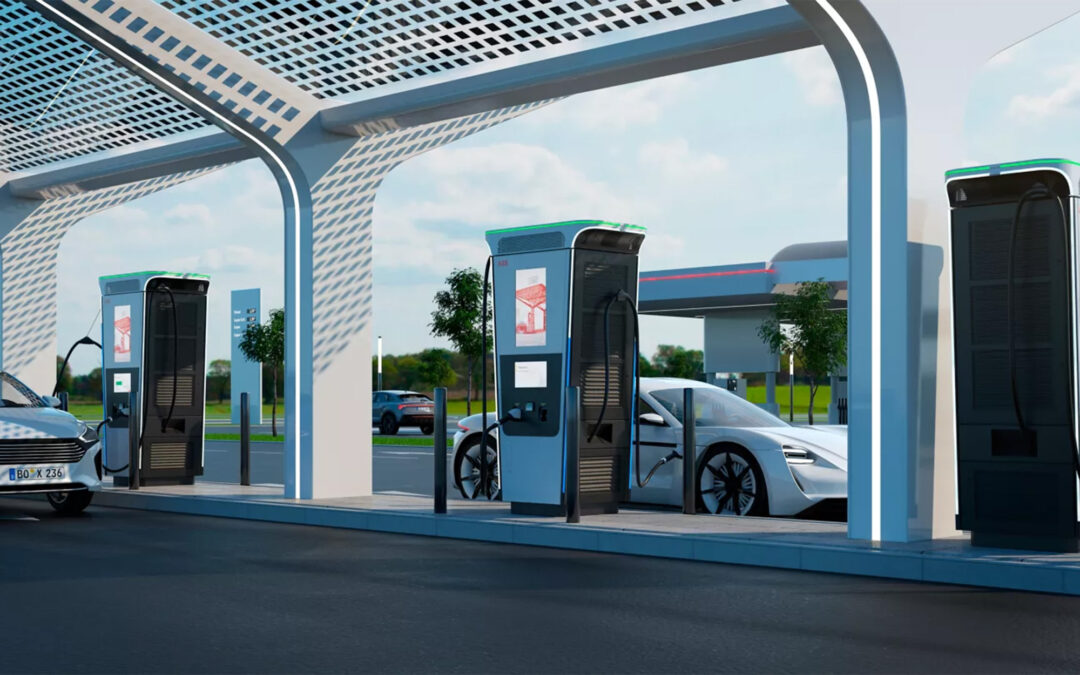As the world moves towards a greener and more sustainable future, electric vehicles have become an increasingly popular choice for environmentally conscious consumers. One of the key aspects of owning an EV is understanding the various types of EV chargers available and how they differ in terms of charging speed, convenience, and compatibility with different vehicles. In this comprehensive guide, we’ll explore the differences between Level 1, Level 2, and DC fast chargers, and why it’s essential to consider your car’s charging needs before selecting a charger.
Level 1 Chargers: Basic Convenience
Level 1 chargers, or trickle chargers, are the most basic type of EV charger available. They typically come standard with most electric vehicles and are designed to be plugged into a standard household outlet. These chargers deliver AC power to the vehicle’s onboard charger, which converts it to DC power to charge the battery.
One of the significant advantages of Level 1 chargers is their simplicity and convenience. Since they can be plugged into any standard outlet, EV owners can charge their vehicles practically anywhere there’s access to electricity. Additionally, Level 1 chargers are relatively inexpensive compared to higher-level chargers, making them an attractive option for those on a budget.
However, Level 1 chargers have a downside—they’re slow. Due to their lower power output, Level 1 chargers are best suited for overnight charging or as a backup option for topping up your EV’s battery when faster charging options are unavailable. On average, Level 1 chargers deliver around 2-5 miles of range per hour of charging, making them impractical for quickly replenishing a depleted battery.
Level 2 Chargers: Faster Charging for Everyday Use
For EV owners looking for faster charging speeds and greater convenience, Level 2 chargers are the go-to option. These chargers are typically installed at homes, workplaces, and public charging stations and offer significantly faster charging than Level 1 chargers. Level 2 chargers require a 240-volt power source, similar to what’s used for large household appliances like electric dryers or stoves. This higher voltage allows Level 2 chargers to deliver more power to the vehicle’s battery, resulting in faster charging times.
One of the primary benefits of Level 2 chargers is their versatility and compatibility with a wide range of electric vehicles. Most EVs today are equipped with onboard chargers capable of handling Level 2 charging, making it an ideal choice for everyday charging needs. Level 2 chargers come in various configurations, including wall-mounted units for home installation and pedestal-mounted units for public charging stations. Some Level 2 chargers also offer smart features such as Wi-Fi connectivity and smartphone app integration, allowing users to monitor charging status remotely and schedule charging sessions to take advantage of off-peak electricity rates.
In terms of charging speed, Level 2 chargers can deliver anywhere from 10 to 60 miles of range per hour of charging, depending on the vehicle’s battery size and the charger’s power output. While Level 2 chargers are significantly faster than Level 1 chargers, they may still not be suitable for long-distance travel or situations requiring rapid charging.
DC Fast Chargers (Level 3): Rapid Charging for Road Trips
For EV owners who frequently embark on long-distance journeys or require rapid charging for time-sensitive situations, DC fast chargers, also known as Level 3 chargers, are the ultimate solution. These chargers deliver high-voltage DC power directly to the vehicle’s battery bypassing the onboard charger, enabling much faster charging speeds.
DC fast chargers are typically found at highway rest stops, shopping centers, and other high-traffic locations, making them ideal for topping up your EV’s battery during a road trip or while running errands.
One of the key advantages of DC fast chargers is their unparalleled charging speed. These chargers can deliver anywhere from 60 to 250 miles of range in as little as 15 to 45 minutes, depending on factors such as the charger’s power output and the vehicle’s battery capacity.
However, DC fast chargers have their limitations. Firstly, they’re significantly more expensive to install and operate compared to Level 1 and Level 2 chargers, making them less common in residential areas. Remember, not all electric vehicles are compatible with DC fast charging, so checking your car’s specifications before attempting to use one is essential.
Reach out to the experts for assistance funding and developing any type of EV charger at Lonestar.
Consider Your Car's Charging Needs
When selecting the right EV charger for your vehicle, it’s crucial to consider your car’s charging needs and capabilities. One of the easiest ways to determine this is by examining your car’s charging port. Most electric vehicles come equipped with either a Type 1 or Type 2 charging port, corresponding to the type of charger they can accept. Type 1 ports are typically found on older EV models and are compatible with Level 1 and Level 2 chargers, while Type 2 ports are more common on newer models and support Level 2 charging.
Some electric vehicles, particularly those with larger battery capacities or faster charging capabilities, may also be compatible with DC fast charging. These vehicles typically feature a separate DC charging port, allowing them to take advantage of the rapid charging speeds offered by Level 3 chargers.
Types of EV Chargers We Can Help Install
- Lonestar Integrated Solutions partners with ABB, leading in EV Charging stations with over 1,000,000 units, offering diverse solutions.
- Xeal, a tech leader in EV charging, provides best-in-class solutions with a 5-year warranty and 100% uptime guarantee.
- RVE’s DCC solutions complement ABB and Xeal, which are ideal for single- and multi-family EV charging and feature innovative EVEMS.
Lonestar Integrated Solutions: Your Source for EVSE Solutions in Texas
Lonestar Integrated Solutions stands as Texas’ premier provider of EVSE solutions. With a commitment to excellence and innovation, we offer a comprehensive range of services to meet the growing demand for electric vehicle infrastructure across the state. Reach out to our experts to start the installation process today.

